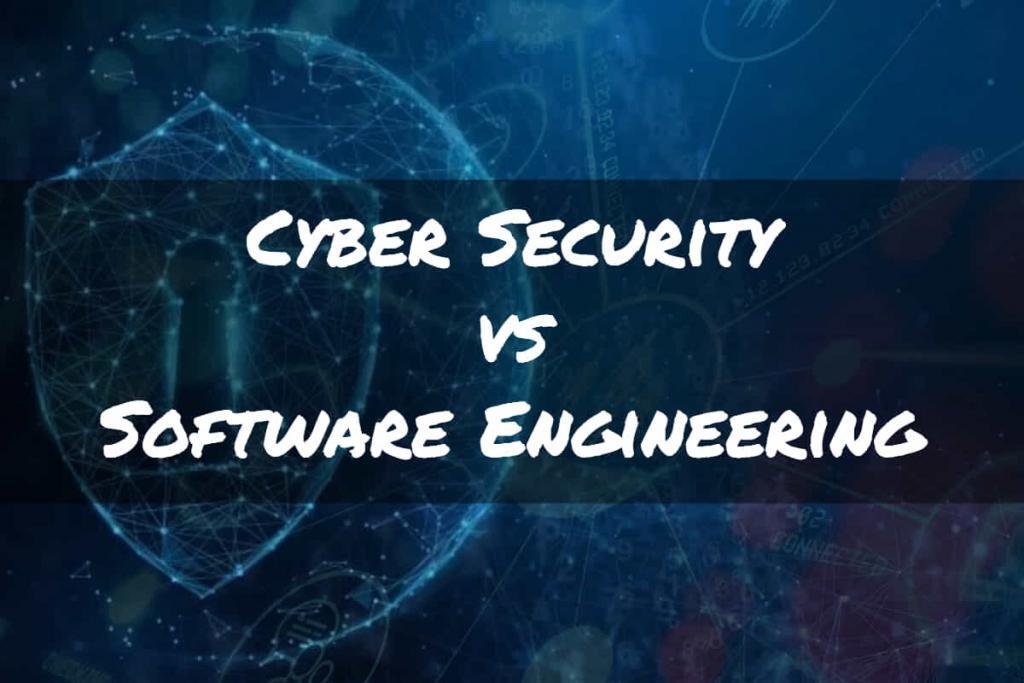What is the best job in cyber security? Well, that really depends on your interests and experience.
If your real question is, what is the best job for me to get my foot into cyber security…then maybe we can answer that in today’s article.
I do want to warn you. Cyber security is generally not considered an entry level career; however, that doesn’t mean you can’t find a job as an entry-level candidate if you’re willing to work hard.
My Opinion
Start your cyber security career with an IT help desk role! Let me tell you why.
Cyber security isn’t generally for people without a technology background. Therefore, you’ve got no choice but to find a way to get some tech experience…FAST!
First off, you’ll gain hands-on experience with various technology systems, software, and hardware. This kind of exposure is invaluable.
It will equip you with the knowledge and skills needed to navigate complex IT landscapes. In turn, this will be super helpful when identifying and mitigating potential security risks in your future cyber security roles.
It’s also great for troubleshooting. As you assist users with all sorts of technical issues, you’ll naturally develop your troubleshooting skills.
You’ll learn how to identify the root causes of problems and come up with effective solutions. This ability to detect and address vulnerabilities will be a major asset when you transition to a more specialized cybersecurity role.
Another important aspect of the IT help desk job is communication where you’ll interact with users on a regular basis. Here, you’ll learn to explain technical concepts in simple terms.
This experience will help you hone your interpersonal and communication skills. This of course, is crucial when working with various teams, reporting security incidents, and providing recommendations to improve your organization’s security posture.
Additionally, working at an IT help desk also gives you a unique perspective on the importance of cyber security. You’ll see firsthand the consequences of poor security practices or lax policies when dealing with customer issues.
This experience will deepen your understanding of the critical need for robust security measures. This real-world experience, combined with your comprehensive understanding of technology systems, will put you in an ideal position to excel in more specialized cybersecurity roles down the line.
It’s a strange thing to say, but if you’re considering a career in cyber security, starting at an IT help desk is one of the smartest moves you could make!
Can I Get a Cyber Security Job Without a Degree?
Yes, you can get a cyber security job without a degree. But it’s more challenging to find a job without a formal education so be prepared to do an extensive amount of studying on your own and ask yourself if it’s worth getting a degree.
What Are Some Entry Level Cyber Security Jobs?
When looking for cyber security beginner jobs, you’ll come across many roles. So many in fact, that it would be difficult to really tell you which role would be a perfect fit.
I can say for sure that trying to become a penetration tester or red teamer right out of school is probably not the best way if you don’t already have the necessary background. These positions are extremely competitive and not as exciting as you see on TV or in the movies.
Besides IT help desk, another good job title for entry-level cyber security graduates is “cyber security analyst” (aka information security analyst). There are many variations of the role such as IT security analyst, SOC analyst, threat analyst, etc.
If you have no IT experience, aim for IT support roles; however, if you do have some background, you might better of applying for “analyst” roles.
What Is the Easiest Cyber Security Job?
The easiest job title is again based on the type of work you like to do and your existing background. A specific job title doesn’t have only one set of responsibilities.
The position of cyber security analyst, for example, is a broad field that carries many different responsibilities depending on which organization you’re employed with. However, if you have no technical experience or knowledge of computer languages, then the best job for you to consider is a Governance, Risk, and Compliance (GRC) analyst role.
I’m not saying this field isn’t a challenge, but you’ll find that it’s not reliant on technical skills to gain entry. Read here if you want know more about how to get into cyber with no experience.
Cyber Security Jobs That Don’t Require a Degree
With little exception, entry-level cyber analyst positions don’t need a degree.
There are some organizations that request a degree, such as government or government contracting companies; otherwise, there’s really no reason why an employer needs a candidate with a degree.
If that’s the only thing holding you back, go ahead and apply anyways.
Most often, many employers will substitute an education for someone with solid project or work experience.
What To Study for Cyber Security Jobs?
Getting a degree is different than asking what to study for a cyber security job. That’s because one is independent of the other. Let’s talk about a couple things you can do to study for a security role:
College Degree. As previously discussed, a college degree is always a good option if you have the time, money, and patience to see it through to the end. An employer is primarily concerned with your foundational knowledge, your lab/project experience, and how well you finished your degree program (i.e. were you an ‘A’ student or ‘C’ student). That last piece demonstrates how well you can assimilate information and your work ethic.
Security Certification. Certifications are an important asset in your cyber security journey. Currently, about 2/3rds of job postings request security certifications as part of the job description. So, if you want to be taken seriously as a security professional, regardless of whether you possess a degree, having up-to-date security certifications are important. They do a great job of keeping you updated on the latest security trends and knowledge, whether by taking the exam or by forcing certificate holders to maintain the required educational credits.
What Do You Major in For Cyber Security?
Have you decided on the college route? Today, most major universities will offer cyber security degree programs.
Unfortunately, many of those programs are still in their infancy.
It’s not uncommon to find two of the same cyber security degree programs with differences in the quality of their education.
That doesn’t mean you still shouldn’t strive for a degree, given the opportunity. It just means, you need to be more discerning about your choices.
A much more practical option is to get an IT degree, then obtain a security certification to move into cyber security.
The benefit here is that it’ll be easier for you to get an IT job, which will make it much easier for you to move into cyber security.
Regardless, trying to determine what major is best for your security career really depends on what area you want to specialize in.
If you’re interested, read here if want to learn more about what to study.
For example, if you’re interest is in network security, then get a degree in network security; or you can get a degree in network engineering or network administration with a security certification.
Either way, it’ll achieve the same result.
Is It Easy to Get a Cyber Security Job?
No, it’s not easy to get a cyber security job because many companies are having difficulty in finding qualified talent.
One of the main reasons why people might perceive a difficulty in getting hired in cyber security is that often companies are looking for experienced personnel to manage the security of their information systems.
What compounds the problem is that many recruiters and hiring managers don’t understand what to look for when it comes to hiring security personnel.
In other words, they need experienced personnel but don’t know what an experienced person looks like!
From their perspective, hiring the wrong person can have significant ramifications to their bottom line.
Therefore, you can certainly understand why companies are often unwilling to hand over such great responsibility to recent graduates or untried talent.
Is It Hard to Get a Job in Cyber Security?
No, just as with any other industry, if you have little-to-no background in IT or security and possess no education or certifications, you can certainly expect some hesitation by companies to hire you.
However, you do need to work to get your foot in the door.
Take a look at my LinkedIn article that talks about how often you should be applying for a job.
In other words, applying for a job, is a job in-itself!
How Competitive Is Cyber Security?
Organizations such as Cyberseek, supported by the National Initiative for Cybersecurity Education (NICE), approximates “that there are only enough cybersecurity workers in the United States to fill 68% of the cybersecurity jobs that employers demand.”
This means that cyber security, as a whole, is not a very competitive field; it only seems that way for a couple reasons.
First, as we previously mentioned is because of the bottlenecks in the corporate hiring process. But the second reason is because many young students tend to think that cyber security means penetration testing or ethical hacking and believe this is the only route into the industry, when in reality there’s so much more!
So, while everyone’s competing for those cyber positions that seem glamorous, I suggest you go after those positions that seem less glamorous and have less competition.
How Many Cybersecurity Jobs Are There?
68% is a really good number considering the total number of cyber security job openings is well over 700,000 jobs!
This means that cyber security has a “0%” unemployment rate; there’s no shortage of cyber security jobs available!
What Companies Hire Cyber Security Professionals?
Companies in nearly every industry have a need for cyber security professionals. However, you will tend to find about 30% of cyber security hiring takes place in the professional services industry (i.e. consulting, staffing, and third-party security providers).
These are companies that hire cyber security personnel to perform security services for other businesses.
For example, if a company needed to develop a cyber security program, they would either hire a Chief Information Security Officer (CISO) to develop a program from the ground up, or outsource their corporate security to a third-party company, or use a cyber security resume database to search for potential candidates themselves.
Where to Start Cyber Security Career?
If I’m being completely honest, the best place to start your cyber security career is by looking for jobs in IT, as I previously mentioned.
As you gain some knowledge, start learning the security aspects of your role, get a security certification, set yourself up with a LinkedIn profile, and eventually make the move into more cyber related roles.
However, if IT isn’t the direction you want to start from, then you need to be tenacious and patient. It’s not uncommon for it take a minimum of 6 months before you get your first offer or even interview.
What Is the Easiest Cyber Security Certification?
The easiest cyber security certification that will lead you down the path of getting the best cyber security job is the CompTIA Security+.
Another is ISC2 Certified in Cybersecurity (CC).
The Security+ has been around for a while and will be one of the first certifications that many technical recruiters look for on your resume. However, the CC is also just as comparable and backed by a very reputable organization.
It’ll take a bit of study depending on how quickly you’re able to absorb the material.
On average, it can take anywhere from a couple of weeks to a month to study for.
Either certification is good enough to get your foot in the door, and they’re also vendor neutral; meaning they don’t just apply to one company, business model, or cyber security tool.
I recommended either cert as being the first security certification you should obtain.
What Skills Are Necessary for Cyber Security?
If you want to know technical specifics, that’s usually dependent upon the field of interest. There’s no one area of technical proficiency that will lead you to the best job.
The Cyber Career Pathways Tool provided by the National Initiative for Cybersecurity Careers and Studies (NICCS) is an amazing source to determine the technical skillset you’ll need for more than 50 different cyber security job titles!
Other than technical skills, there are definitely some soft skills you also need to consider. Common soft skills include critical thinking, analytical problem solving, persistence, communication, interpersonal skills, patience, etc.
And don’t think soft skills aren’t important! Being able to interact with your peers, leaders, and even clients is a highly prized skill that not every person possesses.
Be prepared to go through a rigorous behavioral interview process that tests how you manage to navigate hypothetical scenarios, or how you’ve dealt with previous situations.
Are Cyber Security Jobs in Demand?
Yes, cyber security jobs are in demand.
According to the US Bureau of Labor and Statistics, the demand for information security analyst alone will increase by 35% between 2021 and 2031.
The great thing about cyber security is that you’ll find people that have migrated from many different backgrounds.
Do Cyber Security Jobs Pay Well?
Yes, cyber security jobs pay very well. Many entry-level security jobs can pay upwards of $70k.
After about a year of experience, you can find jobs that pay over $85k.
Websites such as PayScale, ZipRecruiter, Glassdoor, and Salary.com can give you a general idea of the approximate pay range that can be expected.
I’ve tried to do some of the hard work for you by finding the approximate averages according to job title in some of my other posts.
As an example, the average salary for a cyber security auditor is about $108k. Not bad!
Interested in More…
Is Cyber Security Right for Me?
The Best Method to Become a Security Auditor!
Wondering How to Be a SOC Analyst?
Choose the Right Career, Cyber Security vs Ethical Hacking
Cyber Security vs Data Science: Which Is Better?



